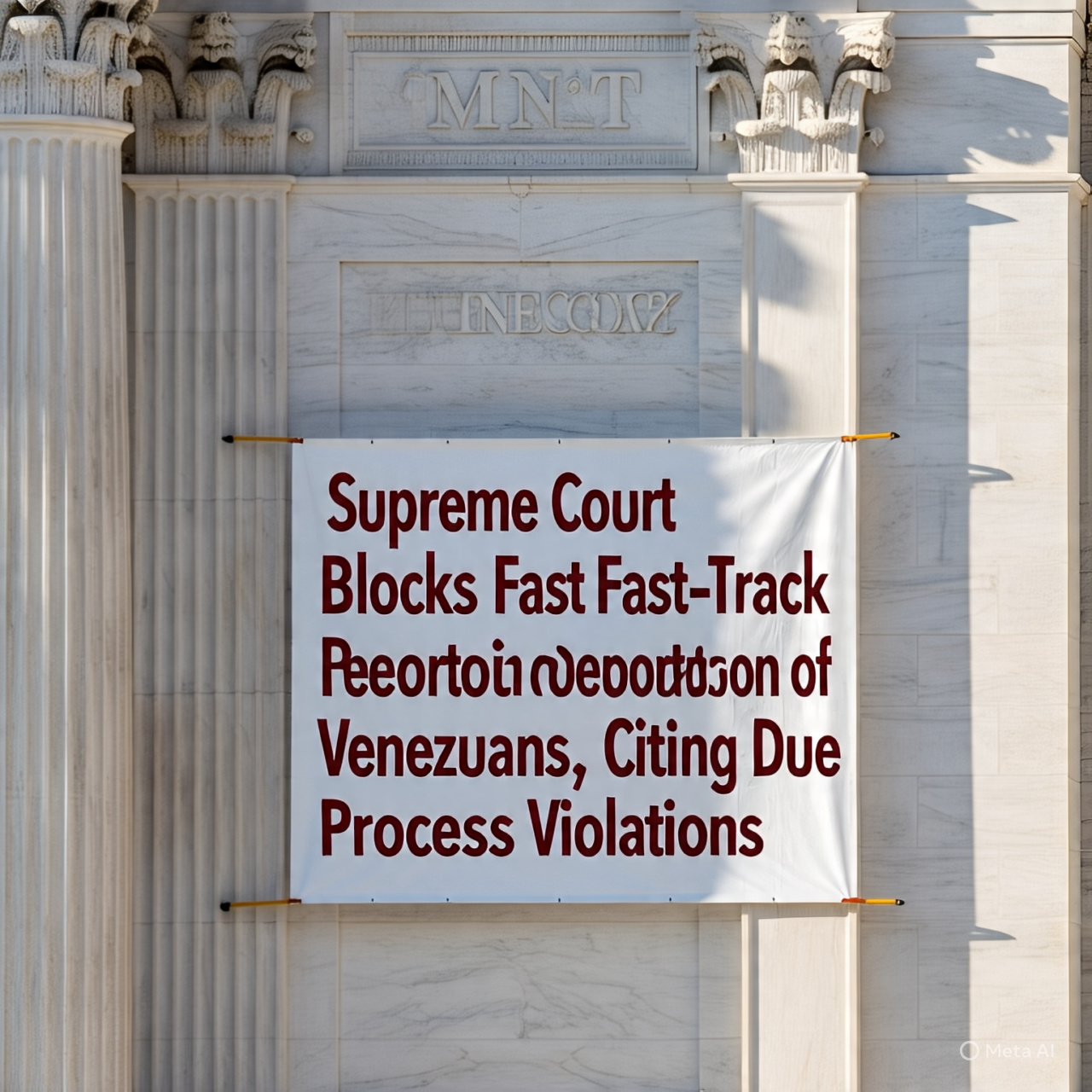Supreme Court Rules Venezuelans Must Be Given More Time to Challenge Deportation Under Alien Enemies Act
In a landmark decision on May 16, 2025, the U.S. Supreme Court ruled that the federal government must provide Venezuelan nationals with adequate time and legal recourse before deporting them under the 1798 Alien Enemies Act. The decision marks a significant legal check on the Trump administration’s immigration policies, which critics have argued bypass due process and violate constitutional rights.
Background
The case arose after the Trump administration sought to swiftly deport dozens of Venezuelans suspected of ties to the criminal group Tren de Aragua. Using the Alien Enemies Act—a wartime statute originally passed during the presidency of John Adams—the administration issued 24-hour deportation notices to Venezuelan nationals without access to legal counsel or an opportunity to contest their removal.
The government’s argument centered on national security, claiming that certain Venezuelans posed a credible threat. However, civil rights advocates, including the ACLU and immigration law experts, condemned the use of the antiquated law as unconstitutional and inhumane.
The Supreme Court’s Ruling
In a 7-2 majority opinion, the Court held that the government must provide reasonable notice and due process protections before deporting individuals under the Alien Enemies Act. The justices emphasized that even in matters of national security, the Constitution does not permit the government to strip people of their rights without a fair process.
Writing for the majority, Justice Sonia Sotomayor stated:
“Even under the broad powers granted in times of conflict, the government must honor the foundational principles of due process enshrined in the Constitution.”
The case has now been remanded to the Fifth Circuit Court of Appeals to determine what constitutes “adequate time” for legal defense before deportation.
Political Reactions
Former President Donald Trump, who is campaigning for a return to the White House, criticized the ruling as “a disgrace” and accused the Court of “putting criminals before American families.” He claimed that the decision would “tie the hands of law enforcement and immigration officers.”
In contrast, the ACLU celebrated the decision, calling it a “major victory for civil liberties.” ACLU legal director David Cole said:
“This ruling reaffirms that no one—citizen or not—can be deprived of liberty without due process.”
Implications
This decision sets a precedent that may restrict the use of historical wartime laws in future immigration enforcement. It underscores that constitutional protections apply universally, even when national security concerns are cited.
Legal scholars have noted that the ruling could have wide-ranging effects on how the federal government handles other immigration-related actions, especially those relying on older, less commonly used statutes.
Sources:
- Reuters – Supreme Court Rules on Venezuelan Deportation
- NPR – Alien Enemies Act Explained
- ACLU Press Release on Supreme Court Decision
- AP News Coverage of the Ruling
This ruling may influence the legal landscape of immigration enforcement for years to come, reaffirming that the rule of law and due process must remain central, even during politically charged times.

